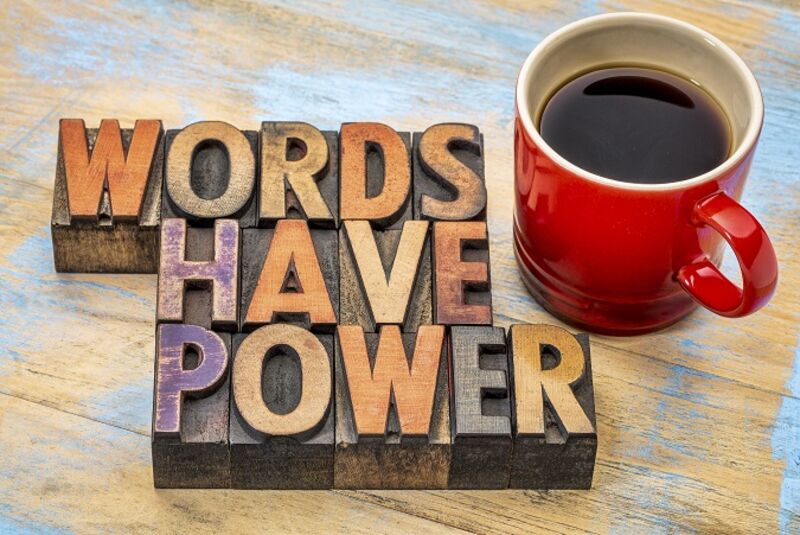
I know nothing in the world that has as much power as a word ~ Emily Dickinson
“Sticks and stones may break my bones, but words will never hurt me!” How many times as a child did I repeat this phrase when someone chose to fling an unflattering word at me? I thought it was a cool retort and made me feel vindicated. But - I still felt the sting of those spoken words, long after they had been uttered. A “stiff upper lip” helped move on from these childish rants. But I admit that sometimes those words from my youth still echo in my head to this day.
Many words have been written about…well, words! Songs, poems, jokes, musings about how words can change the world, for the positive and the negative. A word can inspire or discourage; affirm or nullify; confirm or invalidate.
How do these words make you feel?
- Bright
- Happy
- Attractive
- Pleasant
- Respected
How about these words?
- Dull
- Miserable
- Ugly
- Bitter
- Shamed
Simple words, right? And used in certain ways they are neither good nor bad. But they have the power to elicit emotions, moods and feelings. Some words make you feel good, and some make you feel uncomfortable. Some may even make you feel worthless.
How about these words that are often applied to those who have disabilities:
- Handicapped
- Deaf and Dumb
- Retarded
- Crippled/Confined
- Unfortunate/Invalid/Pitiful/Stupid
Compare them with these words:
- A person who has a disability
- A person who is deaf or hard of hearing
- A person with an intellectual disability
- A person with a mobility disability
- A person
Which of these terms would you prefer to describe yourself or someone you love?
The way we speak reflects how we value, or devalue, others. In the examples above, People First Language puts the person before the disability. A disability is not the defining characteristic of someone, it is merely a part of the whole person. Using people first language reinforces this positive concept.
Various words used in the past are now considered archaic and downright insulting. As society has become aware of this, it has moved to stop using these offensive expressions. This same consideration applies to the terminology used for individuals who have disabilities. The old familiar term ‘handicapped’ – or the “H” Word –triggers a negative image in today's world. The word "handicapped" evokes a false perception of a lack of worth because a person has a disability. This is most likely not the conscience intent of the speaker. But we do well to thoughtfully consider if better terms are available.
My mother always told me to think before I speak. That’s good advice to follow - including when speaking about people with disabilities!
For more on this subject, check out these resources:
Guidelines for Writing About People With Disabilities: https://adata.org/factsheet/ADANN-writing
Reporting and Writing about Disabilities: http://www.ndrn.org/media/press-kit/265-reporting-and-writing-about-disabilities.html
Writing about Disability: http://www.easterseals.com/who-we-are/writing-about-disability.html